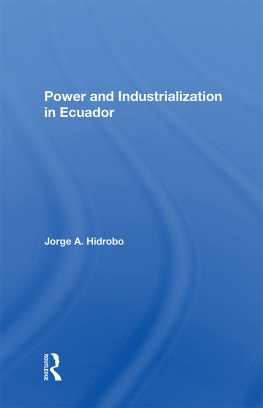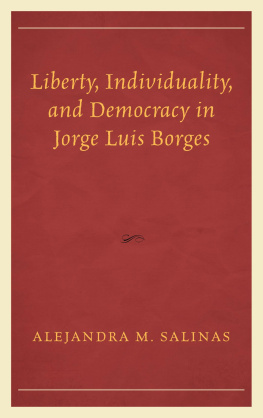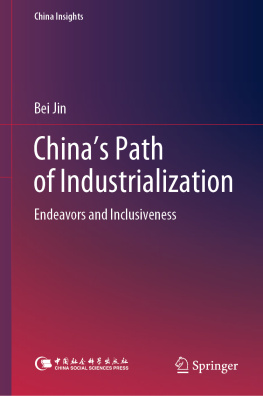Jorge A. Hidrobo - Power and Industrialization in Ecuador
Here you can read online Jorge A. Hidrobo - Power and Industrialization in Ecuador full text of the book (entire story) in english for free. Download pdf and epub, get meaning, cover and reviews about this ebook. year: 1992, publisher: Westview Press, genre: Politics. Description of the work, (preface) as well as reviews are available. Best literature library LitArk.com created for fans of good reading and offers a wide selection of genres:
Romance novel
Science fiction
Adventure
Detective
Science
History
Home and family
Prose
Art
Politics
Computer
Non-fiction
Religion
Business
Children
Humor
Choose a favorite category and find really read worthwhile books. Enjoy immersion in the world of imagination, feel the emotions of the characters or learn something new for yourself, make an fascinating discovery.
- Book:Power and Industrialization in Ecuador
- Author:
- Publisher:Westview Press
- Genre:
- Year:1992
- Rating:4 / 5
- Favourites:Add to favourites
- Your mark:
- 80
- 1
- 2
- 3
- 4
- 5
Power and Industrialization in Ecuador: summary, description and annotation
We offer to read an annotation, description, summary or preface (depends on what the author of the book "Power and Industrialization in Ecuador" wrote himself). If you haven't found the necessary information about the book — write in the comments, we will try to find it.
Power and Industrialization in Ecuador — read online for free the complete book (whole text) full work
Below is the text of the book, divided by pages. System saving the place of the last page read, allows you to conveniently read the book "Power and Industrialization in Ecuador" online for free, without having to search again every time where you left off. Put a bookmark, and you can go to the page where you finished reading at any time.
Font size:
Interval:
Bookmark:

52 Vanderbilt Avenue, New York, NY 10017
2 Park Square, Milton Park, Abingdon, Oxon OX14 4RN
Product or corporate names may be trademarks or registered trademarks, and are used only for identification and explanation without intent to infringe.
Hidrobo Estrada, Jorge.
[Industriales, estado, industrializacin en el Ecuador. English]
Power and industrialization in Ecuador / by Jorge A. Hidrobo.
p. cm.
Translation of: Industriales, estado, industrializacin en el
Ecuador.
Includes bibliographical references and index.
ISBN 0-8133-8398-6
1. Industry and stateEcuador. 2. EcuadorIndustries.
3. EcuadorEconomic policy. 4. EcuadorEconomic conditions1972
I. Title.
HD3616.E23H5313 1992
338.9866dc20 91-38382
CIP
- ACMAndean Common Market
- AECArancel Externo Comn
- AID(U.S.) Agency for International Development
- ANCUPAAsociacin Nacional de Cultivadores de Palma Africana
- BEDEBanco Ecuatoriano de Desarrollo
- CATCertificado de Abono Tributario
- CENDESCentra de Desarrollo Industrial
- CFNCorporacin Financiera Nacional
- CFPConcentracin de Fuerzas Populares
- CIGCmara de Industrials de Guayaquil
- CIFCost, Insurance, Freight or Charged in Full
- CIPCmara de Industrials de Pichincha
- COFIECCompaa Financiera Ecuatoriana de Desarrollo, S.A.
- CONADEConsejo Nacional de Desarrollo
- DINEDireccin Industrial de las Fuerzas Armadas
- ECLA(United Nations) Economic Commission for Latin America
- FONADEFondo Nacional de Desarrollo
- FOPEXFondo de Promotin de Exportaciones
- FOPINARFondo de Promocin de la Pequea Industria
- FRAFrente Radical Alfarista
- FRNFrente de Reconstructin Nacional
- ICindustrial community (Peru)
- IDIquierda Democrtica
- IERACInstituto de Reforma Agraria y Colonizacin
- ILDESInstituto Latinoamericano de Investigaciones Sociales
- IMFInternational Monetary Fund
- ISICInternational Standard Industrial Classification of All Economic Activities
- ISS-PREALCInstitute of Social Studies-Programa de Empleo para Amrica Latina y el Caribe
- JMJunta Monetaria
- JUNAPLAJunta Nacional de Planificacin
- LAFTALatin American Free Trade Association
- LIBORLondon Interbank Offer Rate
- LIDLista de Inversiones Dirigidas
- MICEIMinisterio de Industrias, Comercio e Integracin
- MNCmultinational corporation
- NABANDINABrussels Andean Nomenclature
- NAFINNacional Financiera (Mexico)
- SCSuperintendencia de Compaas
- SNISociedad Nacional de Industrias (Peru)
- SSCsubscribed social capital
- VANnational value-added
Font size:
Interval:
Bookmark:
Similar books «Power and Industrialization in Ecuador»
Look at similar books to Power and Industrialization in Ecuador. We have selected literature similar in name and meaning in the hope of providing readers with more options to find new, interesting, not yet read works.
Discussion, reviews of the book Power and Industrialization in Ecuador and just readers' own opinions. Leave your comments, write what you think about the work, its meaning or the main characters. Specify what exactly you liked and what you didn't like, and why you think so.













